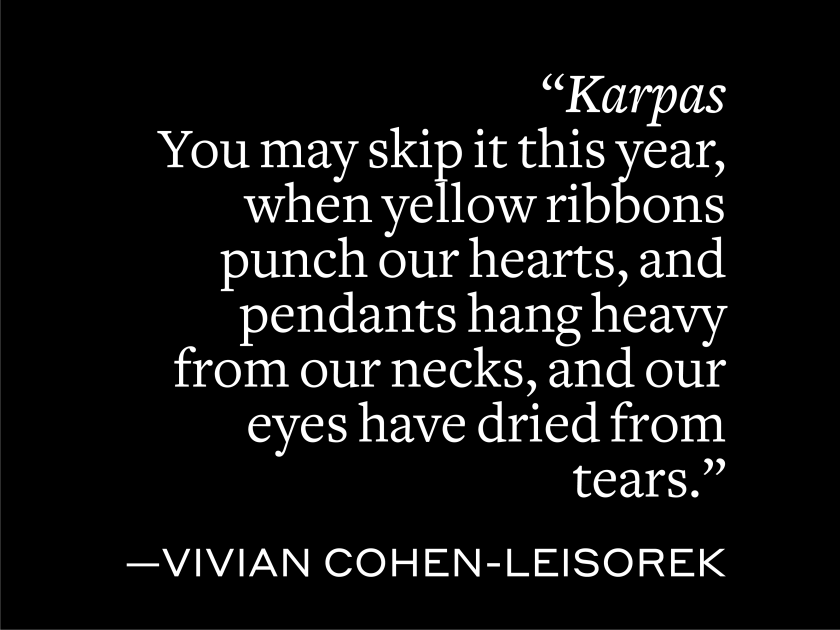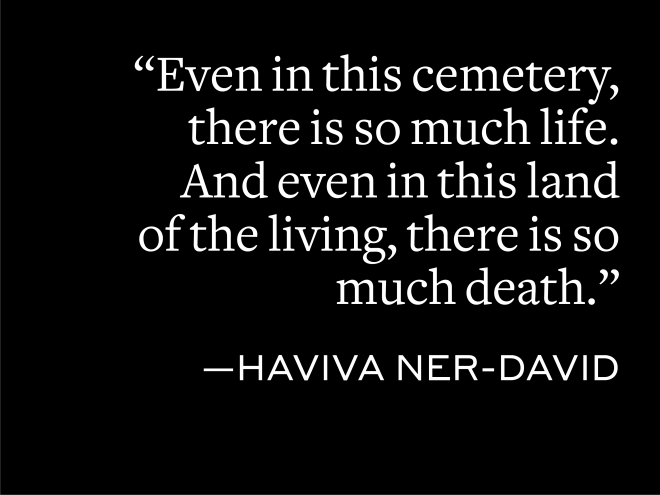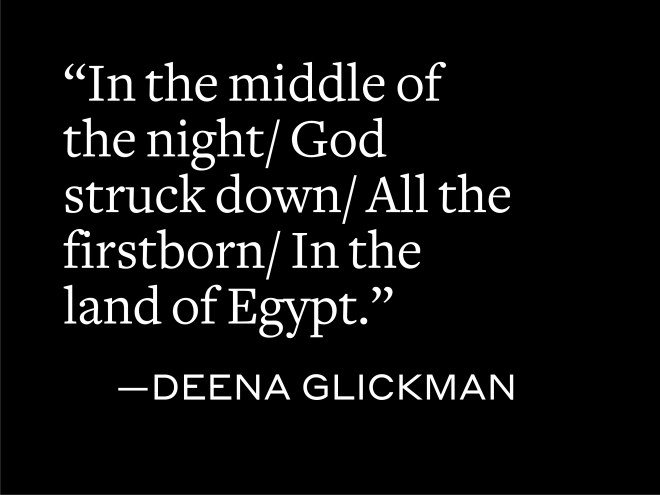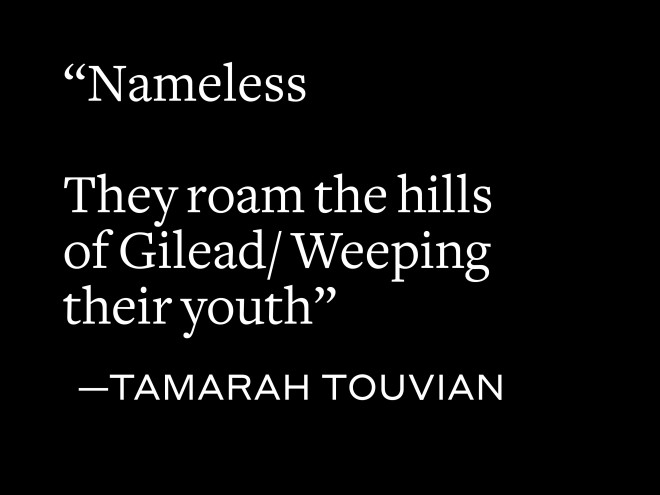
This piece is part of our Witnessing series, which shares pieces from Israeli authors and authors in Israel, as well as the experiences of Jewish writers around the globe in the aftermath of October 7th.
It is critical to understand history not just through the books that will be written later, but also through the first-hand testimonies and real-time accounting of events as they occur. At Jewish Book Council, we understand the value of these written testimonials and of sharing these individual experiences. It’s more important now than ever to give space to these voices and narratives.
In collaboration with the Jewish Book Council, JBI is recording writers’ first-hand accounts, as shared with and published by JBC, to increase the accessibility of these accounts for individuals who are blind, have low vision or are print disabled.
Kadesh
We still can’t decide on the name of the operation, let alone make a blessing over it. Beit Hillel calls it Swords of Iron. Beit Shamai says Iron Swords.
“Do you know how these names come about?” asks my son’s well-informed friend, also a soldier. “There’s a database, ready to go.” It’s easier than naming tropical storms, because hurricanes appear in alphabetical order. Wars, not so much.
Granted, some names work better than others: Operation Oferet Yetzuka, Cast Lead, 2008, maintains its zing even when translated. Operation Tzuk Eitan, Protective Edge, 2014, was doomed from the start. Some names squeeze in biblical allusions: Pillar of Defense (also called Pillar of Cloud), 2012; Guardian of the Walls, 2022. Others sound almost lovely: Summer Rains, 2006.
Lately, I’ve begun to mix up the names, recalling operations that didn’t happen (or at least not yet): Cast Iron, Pillars of the Walls, Clouds of Rain. I imagine a nameless kid in the Kirya, — though he is probably no longer a teenager, his decade-old uniform fitting awkwardly now that he’s serving in the reserves — chiding me from his desk as he sips from his grape-flavored soda. “There’s a reason those names weren’t chosen. I crossed them out from the list that I got from the Random Name Generator.”
Then I picture a new kid, a girl, serving in that role today. She is typing on a keyboard from the same office chair with the stained upholstery, asking ChatGPT for new combinations to replenish the never-ending list. “Give me serious-sounding names that don’t carry any meaning, but can be repeated in the media, social and unsocial alike, and that, once exhausted, we will all work hard to forget.”
Urhatz
According to some customs, only the head of the house washes their hands.
While the rest of us were trying to look for our faults, and while the chiefs of the army, the Shin Bet, the Mossad, and the heads of every city, kibbutz and community, publicly acknowledged their failures and began to make amends, our studious Prime Minister washed his hands.
Without even getting up from his chair.
“How easy!” I hear him adding in his characteristic baritone, maybe even with an arrogant wink. “It didn’t even need a blessing.”
Karpas
You may skip it this year, when yellow ribbons punch our hearts, and pendants hang heavy from our necks, and our eyes have dried from tears.
Yahatz
No need to break the middle matzah, either. We’re already broken, the edifice of our nation crushed. We are busy finding our way out of the rubble, relying only on each other, given the incompetence of our politicians and the indifference of so much of the world.
Magid
We want to tell the story, but do you want to listen?
That’s okay. In the meantime, we will focus on remembering, and preserving; helping, consoling, crying, and trying to heal.
One day, all this will become a coherent narrative. An account that captures the hailstorm upon Kissufim, and the swarms of white pick-ups befalling Be’eri. One that preserves the blood in the ditches near Reim, and the pestilence that lingered for weeks in Nachal Oz. A story of the darkness in Khan Yunis, Sajaiya, and Jabalia. And that remembers the deaths of the firstborns, and of the middle-and-last-borns, and even of the unborn sons and daughters everywhere.
We will set the tale on the last day of Sukkot and continue through the changing seasons; through the nonstop rains and into that spring when the red poppies in the south bent their heads in solitude; when the cyclamens in the north took cover under rocks, and yellow wildflowers bloomed in the Hostages Square.
We tell this tale, but we will also ask questions and hope for answers. Answers more specific than in every generation, they rise to annihilate us.
In the meantime, we will condense lives into sayings and print stickers with photos of youth and light, pasting them to bus stops, lampposts, windows, and T‑shirts. We will remember Yonatan, Ori, Eden, Lavi, Uriah, Moti, and Aner. And we will do this hundreds of times, 1,400 times over, for as long as it’s necessary, and until the Spokesperson’s Office stops releasing names for publication.
Rachatz
This time, please get up and wash your hands, even if symbolically. Rid yourself of the injustice, the callousness, the passivity. Only then will you be ready to give new meaning to the parts of the seder that follow.
Motzi
A reminder that, unlike the 133 hostages, we have enough to eat.
Matzah
Half a pita with za’atar.
Then bring all the food to the table. No need for the seder plate anymore.
Maror
Choose anything from the table. Because this year, everything is bitter. Even the charoset.
Why is this night different from other nights? This was the year where Hanukkah was dark, and Purim was joyless. This seder night, we can only think of those who are not free.
Korech
It’s okay if you can only take one bite. Call it your solidarity sandwich.
Shulchan Orech
Together we will win. So together, start grabbing all the food — the salads, the meatloaf, the kugels, the gefilte fish, even the kitniyot—and turn them into food packages. Then go out and give them to the needy.
Consider leaving your door open — just in case the prophet Elijah stops by.
Tzafun
The seder cannot continue, because even if you think you’ve found the afikoman, there’s still 133 pieces left.
Barech
You may sigh instead.
Hallel
Here, too.
Nirtza
In the hopes that next year, we will read from the traditional Haggadah in Jerusalem. And in Metula, Kiryat Shmona, Kfar Blum, Nahal Oz, Nir Oz, Netiv Haasara, Saad, Manara, Kfar Giladi, Kfar Azza, Reim, Kissufim, Yiron, Be’eri, Sderot, Gvulot and Ofakim.
The views and opinions expressed above are those of the author, based on their observations and experiences.
Support the work of Jewish Book Council and become a member today.
Vivian Cohen-Leisorek is a Guatemalan-Israeli writer whose work has appeared in The Tel Aviv Review of Books, BusinessWeek Online, and Underground, and publishes a popular Substack diary about the October 7 War. She currently working on a memoir about her year volunteering with injured soldiers in Israel’s largest hospital.



